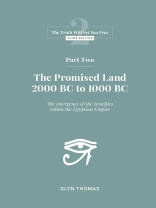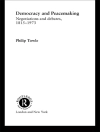The advent of printing in the 15th Century allowed common usage of the Bible, establishing its authority as the sole record of ancient history without competition from other sources for over 4 centuries. It was only in the 19th Century that we rediscovered how to understand ancient cuneiform and hieroglyphic texts from the Mesopotamian and Egyptian civilisations. Gradually, translations of ancient original texts dating back up to 5000 years, far earlier than any fragments of the Old Testament, revealed the muddled record of history contained in the Bible. This is hardly surprising as Hebrew writing emerged only to 1000BC, when adopting the Phoenician alphabet.
Perhaps surprisingly, even texts from the Monarchical period (1000BC to 597BC) generally appear to have been written, or at least heavily redacted, hundreds of years after the events recorded. Indeed, the bulk of the Old Testament scripture uses language and references clearly dating authorship to the time of the Exile (597BC to 538BC) or later.
When the priests in Babylon tried to craft the national foundation story from ancient oral traditions, they only had a hazy understanding of history and lacked any method of verification. In the Bible, the Exodus follows slavery under the Egyptians, but research for this book points to an Expulsion, followed later, by slavery under Egyptian rule.
Содержание
Map The Levant in the 2nd Millennium BC
1Recap of Part One and introduction to Part Two
2New theory for the Exodus from slavery in Egypt
3Geo-political history of Palestine during the 2nd Millennium BC
4Egyptian decline enables pre-monarchical Israel to emerge.
5Conclusions reviewing Egyptian power during 2nd Millennium BC
6Where do the Israelites fit into recorded history & archaeological findings?
7Where did the Israelites originate from?
8The Promised Land
9The Table of Nations in Genesis chapter 10
10The origin of The Shepherd
11The Tower of Babel
12Abraham’s interactions with Hittites, Philistines & Arameans
13The story of Joseph in Egypt & the cities of Pithom and Ramesses
14The Book of Joshua
15The United Monarchy — Saul, David & Solomon
16The stunning implications of the name Elizabeth
17Cyrus conquest of Babylon — aided by Yahweh or by Marduk?
18Biblical Inerrancy
18 bisNew evidence concerning the destruction of Sodom & Gomorrah and Jericho
19An alternative view of our creation
20Conclusions
Appendix: Key family members of the ancient ‘gods’
Index
Biblical references
Bibliography
Books in this series
Symbols used on covers in this series












